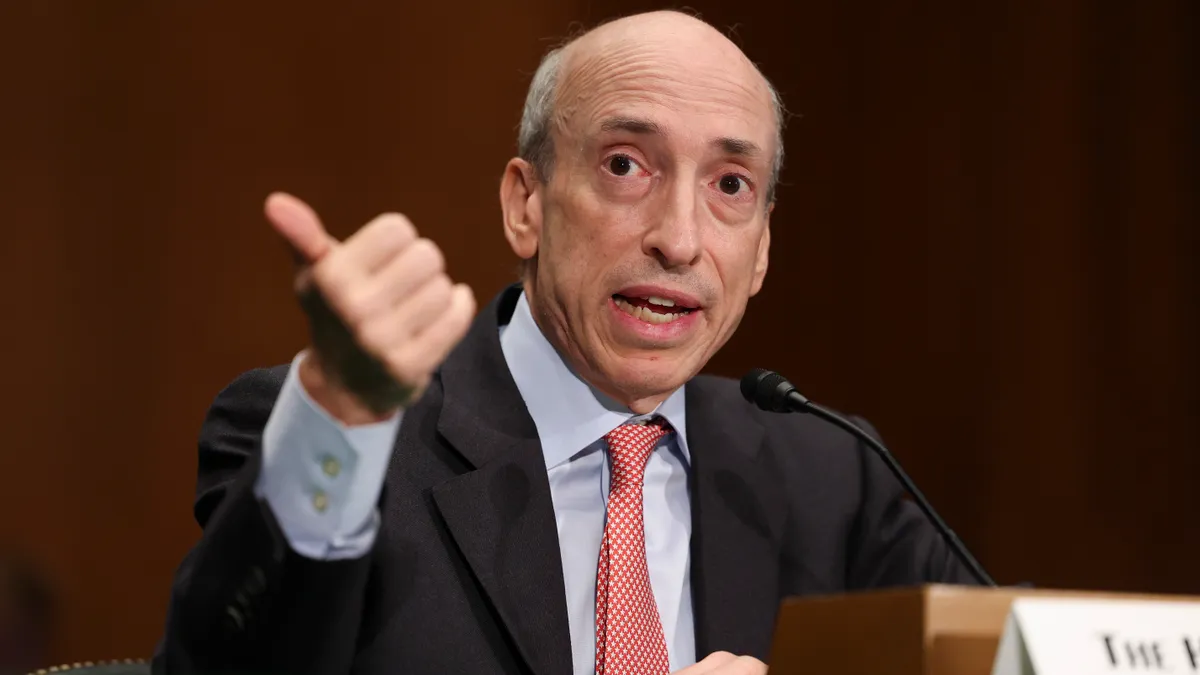Dive Brief:
- The Securities and Exchange Commission charged 17 individuals with supporting a $300 million Ponzi scheme run by Houston-based CryptoFX LLC that targeted more than 40,000 predominately Latino investors with promises of exorbitant crypto profits.
- CryptoFX bilked investors in the U.S. and two other countries with false claims of trading in crypto assets and foreign exchange markets, the SEC said on Thursday. In reality, the 17 individuals connected to the company in Texas, California, Florida and two other states ran a Ponzi operation, raising money from investors by pledging returns ranging from 15% to 100%, the agency said.
- CryptoFX “targeted Latino investors with promises of financial freedom and life-altering wealth from ‘risk free’ and ‘guaranteed’ crypto and foreign exchange investments,” Gurbir Grewal, the director of the SEC’s Enforcement Division, alleged in a statement. “In the end, the only thing that CryptoFX guaranteed was a trail of thousands upon thousands of victims stretching across 10 states and two foreign countries.”
Dive Insight:
SEC Chair Gary Gensler has stepped up agency efforts to protect investors involved in what he calls the “Wild West” of crypto assets.
“This asset class is rife with fraud, scams and abuse in certain applications,” Gensler said in a 2021 speech.
“There’s a great deal of hype and spin about how crypto assets work,” according to Gensler. “In many cases, investors aren’t able to get rigorous, balanced and complete information.”
The SEC in fiscal year 2023 cracked down on several billion-dollar crypto fraud schemes, bringing charges against executives including FTX CEO Samuel Bankman-Fried and Terraforms Labs Founder Do Kwon. It also rooted out illegal celebrity touting and unregistered crypto asset offerings, platforms and intermediaries.
The SEC in September 2022 halted operations at CryptoFX, froze its assets and charged its two top executives with engaging in fraud.
The company’s founder, Mauricio Chavez, allegedly held classes beginning in 2020 “for the ostensible purpose of educating and empowering the Latino community to build wealth through crypto asset trading,” the SEC said.
Yet “Chavez had no background, education or training in investments or crypto assets,” the agency said. “The seminars were merely conduits for soliciting investors to give their money to CryptoFX.”
The agency charged the 17 individuals on Thursday with using investor funds to pay bogus returns to other investors, pay commissions to themselves and bankroll their lifestyles. Two of the defendants continued to seek investments after the SEC shut down CryptoFX, while a third told investors the SEC’s action was fake.
“Despite raising more than $300 million (mostly in cash), Chavez’s crypto-asset and foreign-exchange market trading generated only $2.6 million in trading profits (or less than 1% of the total amount raised), and CryptoFX could only make payments of promised returns by using the funds coming in from new investors,” the SEC said in its court filing.












